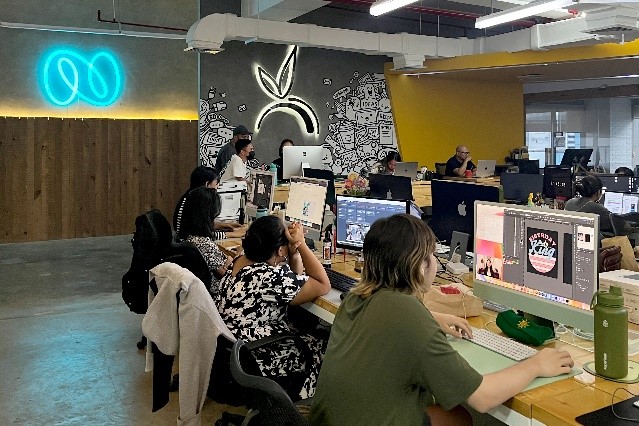The appeal of working from home has, without a doubt, captivated many in recent years. The comfort of your own workspace, flexible hours, and ditching the commute all painted a picture of an ideal workplace. However, studies are now casting a shadow over this rosy picture. Recent research points to the downsides of the work from home (WFH) setup.
The tide is turning. A late 2023 survey revealed that 9 in 10 companies with office space will return to office (RTO) by the end of 2024. Many are doing so for physical interaction, spontaneous collaboration, and better opportunities for career growth, among other things. In this blog, we will be discussing the advantages of RTO.
Benefits of Working in an Office


- Clearer sense of belonging Being around coworkers who share a common goal reinforces individual purpose within the organization. Additionally, working in an office helps build a sense of belonging, which refers to someone’s feeling of acceptance within a group or organization.
- Friendship and connection While chatrooms and video calls served us well during the pandemic, working together in an office makes it easier for employees to bond with colleagues. Social activities like coffee walks and team building contribute to strengthening work relationships. Statistics indicate that it is these connections that employees find very important to company culture and encourages them to stay.
- Improved productivity Working at home often has distractions and interruptions such as household chores, pets, and noise. Keeping boundaries by working in an office can help employees to focus on tasks and give full attention to personal life at the right hours.
- Optimized innovation Being physically present in an office contributes to an environment that is conducive to collective innovation. In places such as the state-of-the-art studio of RipeConcepts, in-office staff develop ideas faster and more easily. Such a positive working atmosphere in an office setting is difficult to replicate through just computer screens.
- Enhanced professional growth An office setting gives employees more visibility and opportunities for learning, mentoring, feedback, recognition, and career advancement. In contrast, these opportunities may be limited or less effective when working from home.
- Local economies get a boost Office workers help local businesses by flocking to nearby cafes, restaurants, shops, and services. This creates a positive impact on the economic recovery and resilience of local communities.
WFH or RTO?
In the WFH and RTO debate, there are conflicting findings as different studies use different methodologies. Some companies have chosen to adopt a hybrid work model, which tries to accommodate various preferences and objectives. Outsourcing is another flexible alternative that can offer many benefits. If a company can find a reliable offshore team that works under one roof, outsourcing can be a great solution.
The growing momentum behind RTO compels a critical reevaluation of work practices. This is not merely a shift in location, but an imperative demanding adaptation at both individual and organizational levels. Individuals must hone their collaboration and productivity skills. Meanwhile, organizations must prioritize agility, setting up frameworks that empower teams wherever they are in order to gain a competitive business edge.

To conclude, RTO presents an opportunity to reimagine the workplace, fostering a culture of innovation and resilience in a dynamic, digital environment. This change is required to navigate the future of work effectively.

Business, Employee-leasing, Outsourcing



